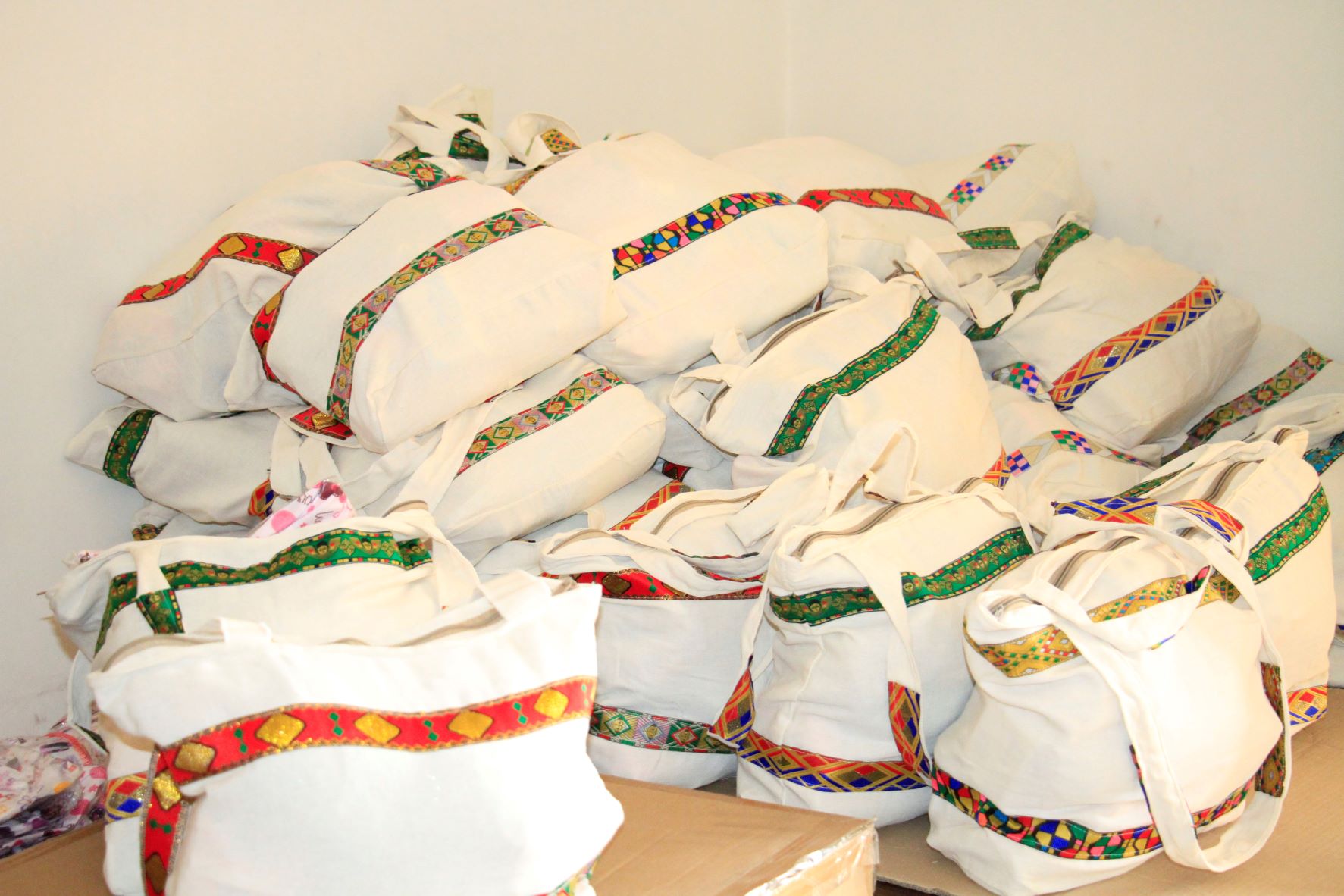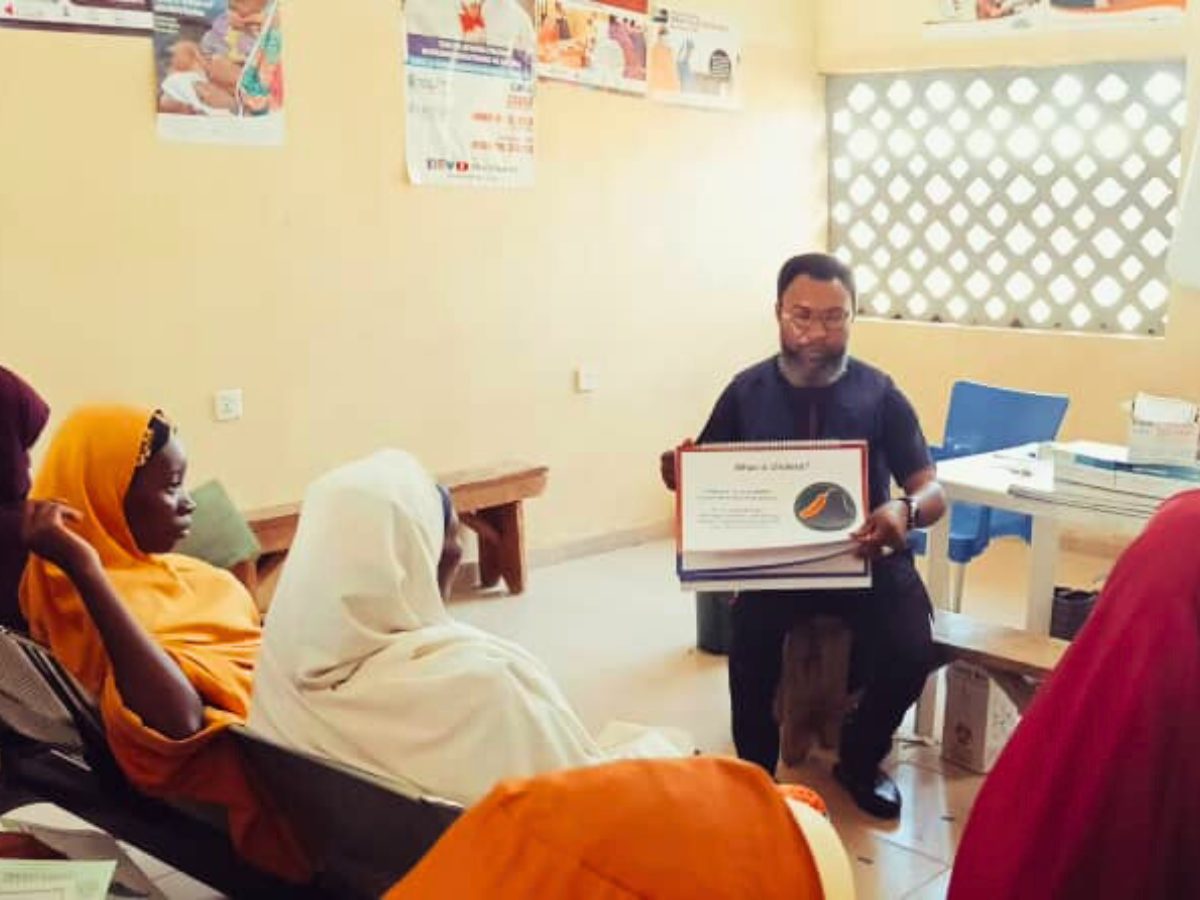Women and girls living in war and conflict zones are at increased risk of sexual and gender-based violence (SGBV), resulting in physical injuries, unwanted pregnancies, fistula, sexually transmitted infections – including HIV – and death. In recent months, the war in the Amhara region of Ethiopia has subjected many women to sexual and gender-based violence and thousands of survivors have found themselves in need of emergency support to recover from their injuries and trauma.
“We have been detecting four to five women testing positive for HIV each day since the war erupted in the northern part of Ethiopia, and most of the cases are associated with rape and other gender-based assaults,” said Habtamu Aklile, HIV/STI prevention and control officer in North Wollo Zone Health Department. What makes the situation worse is that none of the women raped during the conflict were able to access comprehensive post-rape care – including emergency contraception, post emergency prophylaxis for HIV and sexually transmitted infections, assessment, and treatment of injuries – for a long time.
In October 2022, with support from the President’s Emergency Plan for AIDS Relief (PEPFAR) through the Centers for Disease Control and Prevention (CDC), ICAP supplied 400 dignity kits survivors of sexual and gender-based violence currently receiving medical care, treatment and psychosocial support services at selected 16 health facilities in the region.
Each dignity kit supplied by ICAP contains 18 sanitary items and products, including underwear, menstrual pads, laundry bar, pajamas, bath towel, comb, nail cutter, hair oil, Vaseline ointment, slippers, packing bag, and other essential items. The kits help SGBV survivors maintain proper hygiene, restore dignity, build confidence, and are a critical component of the ICAP’s comprehensive response to SGBV in the areas affected by war in the Amhara region.
The dignity kits are a continuation of the technical and material support that ICAP has been providing to these facilities since 2021,enabling them to deliver SGBV survivors with comprehensive medical, mental, psychological and social services. Currently, about 12 facilities in the region are providing integrated SGBV service while the remaining four facilities are delivering one-stop SGBV service to women survivors.
So far, ICAP has trained 40 health care workers and oriented 20 facility leaders to ensure the delivery of quality SGBV medical care and psychosocial support services to women survivors. It has also conducted frequent on-site supportive supervision to ensure that service delivery is on track and in line with the standard and quality of care practices. Additionally, ICAP purchased and supplied furniture, medical equipment, and related supplies and provided SGBV guidelines, M&E tools, and forms that would enable the facilities to initiate SGBV service.
SGBV is referred as an act of gender-based violence or any harmful act of sexual, physical, psychological, mental, and emotional abuse that is perpetrated against a person’s will that results in or is likely to result in physical, sexual, or psychological harm or suffering to women in public and private sphere of life.
All in all, ICAP’s response to SGBV has been initiated with the firm belief that every survivor of SGBV should have access to health care service, voluntary HIV testing and counseling, post exposure prophylaxis (PEP), and emergency contraception services, as well as chronic HIV care for all HIV positive survivors free of charge.
Moving forward, ICAP will work to strengthen its response to SGBV through facilitating multisectoral and integrated interventions, reinforcing community-facility collaboration, and increasing its cooperation with key government stakeholders to expand one-stop centers that deliver SGBV care and treatment services.
About ICAP
A major global health organization that has been improving public health in countries around the world for nearly two decades, ICAP works to transform the health of populations through innovation, science, and global collaboration. Based at Columbia Mailman School of Public Health, ICAP has projects in more than 40 countries, working side-by-side with ministries of health and local governmental, non-governmental, academic, and community partners to confront some of the world’s greatest health challenges. Through evidence-informed programs, meaningful research, tailored technical assistance, effective training and education programs, and rigorous surveillance to measure and evaluate the impact of public health interventions, ICAP aims to realize a global vision of healthy people, empowered communities, and thriving societies. Online at icap.columbia.edu .







